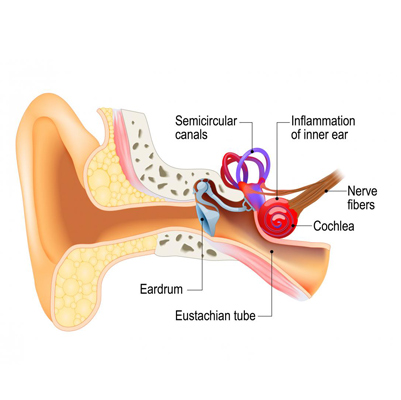Auditory Processing Disorder
Auditory Processing Disorder (APD) – Spaks Homeopathy Overview
Auditory Processing Disorder (APD), also known as Central Auditory Processing Disorder, is not hearing loss or deafness. Instead, it is a condition where the brain struggles to process sounds in the usual way. The ears may work normally, but the coordination between the ears and the brain is disrupted.
Children with APD find it difficult to recognize and interpret sounds, especially speech. They may hear words differently from what was actually said.
Example: When someone says, “Please raise your hand,” a child with APD might hear, “Please haze your plan.”
This makes communication, learning, and social interactions more challenging.
Symptoms of APD
-
Difficulty locating where a sound is coming from
-
Trouble understanding speech in noisy places or when multiple people are speaking
-
Slow response in conversations
-
Frequently asking “what?” or “huh?”
-
Inconsistent or inappropriate replies
-
Difficulty following rapid or complex instructions
-
Struggles with songs, rhymes, and remembering auditory details
-
Misunderstanding jokes, sarcasm, or tone of voice
-
Weak musical and singing ability
-
Short attention span, especially when listening
Spaks Homeopathy Approach
Homeopathy provides gentle, safe, and individualized treatment that works on improving:
Concentration and attention span
Memory and comprehension of sounds
Ability to process and respond appropriately
Speech clarity and confidence in communication? Emotional balance to reduce frustration and stress
With personalized remedies, Spaks Homeopathy supports children and adults with APD in overcoming daily challenges, enhancing learning ability, and improving quality of life — naturally and without side effects.
Would you like me to also design this in a “Parent-friendly handout style” with simple icons and bullet points so it can be shared easily in clinic or social media posts?
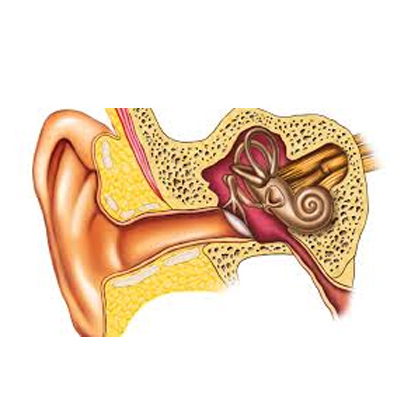
Barotrauma
Ear Barotrauma – Spaks Homeopathy Overview
Ear barotrauma is a condition that occurs when there is a difference in pressure between the inside of the ear and the outside environment.
This imbalance can lead to pain, discomfort, and in some cases, long-term hearing problems.
The middle ear is an air-filled space that connects to the back of the nose through the Eustachian tube. Normally, this tube stays closed, but sudden pressure changes such as during flying, diving, or altitude shifts can cause difficulty in equalizing pressure.
Symptoms of Ear Barotrauma
-
Feeling of pressure or fullness in the ear
-
Ear pain
-
Dizziness or imbalance
-
Blocked ear sensation
-
Bleeding from the ear or inside the middle ear
-
Ringing sound (tinnitus)
-
Temporary or permanent hearing loss
Spaks Homeopathy Care
At Spaks Homeopathy, treatment is focused on:
-
Relieving pain and pressure naturally
-
Supporting healthy Eustachian tube function
-
Improving hearing capacity
-
Preventing long-term complications
Homeopathic remedies provide gentle, effective, and safe care for ear barotrauma without harmful side effects.
Would you like me to also prepare a short note-style version (just 5–6 crisp lines) for quick reading and patient handouts?
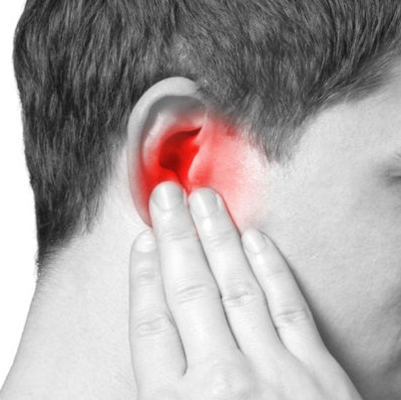
Benign Paroxysmal Positional Vertigo
Benign Paroxysmal Positional Vertigo (BPPV) – Spaks Homeopathy Overview
Benign Paroxysmal Positional Vertigo (BPPV) is one of the most common causes of vertigo – the sudden sensation that either you are spinning or your surroundings are moving.
BPPV causes brief but recurring episodes of dizziness, ranging from mild to severe. These episodes are usually triggered by changes in head position, such as tilting the head up or down, lying on the bed, turning over, or sitting up suddenly.
While BPPV can be uncomfortable and increase the risk of falls, it is rarely a serious condition. With proper care, including simple therapeutic maneuvers and homeopathic treatment, it can be effectively managed.
Symptoms of BPPV
-
Sudden dizziness
-
Sensation of spinning (vertigo)
-
Loss of balance or unsteadiness
-
Nausea
-
Vomiting
Spaks Homeopathy Care
At Spaks Homeopathy, we focus on:
-
Relieving vertigo and dizziness naturally
-
Reducing recurrence of BPPV episodes
-
Improving balance and stability
-
Providing safe, side-effect-free remedies
With gentle and effective homeopathic treatment, patients often experience long-lasting relief from BPPV.
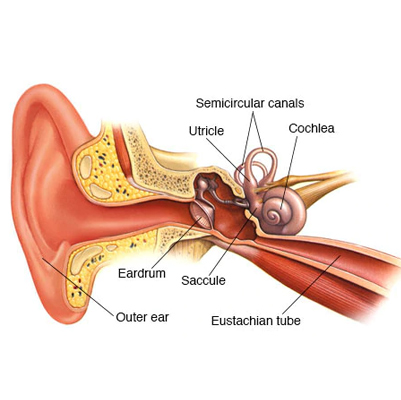
Conductive Hearing loss
Overview
Conductive hearing loss (CHL) occurs when there is a blockage or damage in the outer or middle ear that prevents sound from reaching the eardrum and the tiny bones of the inner ear.
Common causes include earwax buildup, ear infections, fluid in the middle ear, eardrum perforation, or structural problems.
This type of hearing loss usually reduces the volume of sounds, making them seem muffled or softer, and it can be temporary or permanent depending on the cause. Unlike sensorineural hearing loss, conductive hearing loss is often more easily treatable.
Symptoms of Conductive Hearing Loss
-
Difficulty hearing speech clearly
-
Feeling that your own voice sounds different (echo-like or hollow)
-
Hearing better from one ear than the other
-
Pain in one or both ears
-
Sensation of pressure or blockage in the ear(s)
-
Unusual odor from the ear (may indicate infection)
Effects
-
Communication problems, especially in noisy environments
-
Social withdrawal or frustration due to poor hearing
-
Delay in learning and speech development (in children)
-
Recurrent ear infections leading to chronic discomfort
-
Risk of permanent hearing impairment if untreated
-
Impact on balance and daily functioning
Treatment
-
Medical treatment:
-
Removal of earwax blockage
-
Antibiotics for ear infections
-
Surgical repair of eardrum perforation or middle ear bones (if required)
-
-
Hearing aids in persistent cases
-
Lifestyle care: Avoid inserting objects in the ear, maintain proper hygiene, treat infections early
Spaks Homeopathy Treatment
At Spaks Homeopathy, treatment focuses on gently stimulating the body’s natural healing to restore ear health and improve hearing:
-
Silicea – for repeated ear infections with discharge or blockage
-
Kali muriaticum – for congestion and fluid in the middle ear
-
Pulsatilla – for thick yellow ear discharge, ear pain, and hearing loss after cold
-
Ferrum phosphoricum – for early-stage ear inflammation with pain and mild hearing loss
-
Chenopodium – useful in partial hearing loss and noises in the ear
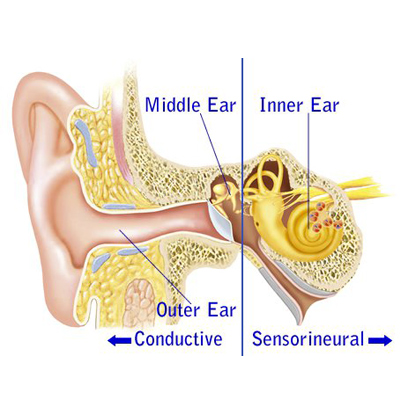
Granulomatosis with Polyangiitis
Overview
Granulomatosis with polyangiitis (GPA) is a rare autoimmune disorder that causes inflammation of blood vessels (vasculitis).
It mainly affects the nose, sinuses, throat, lungs, and kidneys. In this condition, inflamed tissues may form granulomas (small clumps of immune cells), which interfere with the normal function of organs.
Earlier, it was known as Wegener’s granulomatosis. GPA slows blood flow, leading to organ damage if untreated.
With early diagnosis and treatment, recovery is possible. Without treatment, it can be life-threatening.
Signs & Symptoms
-
Nose & Sinuses:
-
Pus-like nasal discharge with crusts
-
Frequent sinus infections, nosebleeds, nasal stuffiness
-
-
Lungs & Airways:
-
Persistent cough (sometimes with bloody phlegm)
-
Shortness of breath, wheezing
-
-
General Symptoms:
-
Fever, fatigue, unexplained weight loss
-
Joint pain and stiffness
-
-
Nerves:
-
Numbness or weakness in fingers, toes, or limbs
-
-
Kidneys:
-
Blood in urine
-
Kidney inflammation (may lead to kidney failure if untreated)
-
-
Skin & Eyes:
-
Skin sores, rashes, bruising
-
Eye redness, burning, pain, or vision problems
-
-
Ears:
-
Ear pain, inflammation, hearing difficulties
-
Effects if Left Untreated
-
Permanent organ damage (lungs, kidneys, nerves)
-
Chronic hearing loss or vision impairment
-
Kidney failure
-
Can be fatal in severe cases
Homeopathic Supportive Treatment
While conventional treatment (like corticosteroids and immunosuppressants) is often required for GPA, homeopathy may be used as supportive care to:
Reduce inflammation
Improve immunity balance Relieve fatigue, joint pain, and sinus issues
Support kidney and lung function
Commonly Used Remedies
-
Kali Bichromicum – for chronic sinus infections with thick, stringy mucus
-
Arsenicum Album – for burning pains, weakness, breathlessness
-
Phosphorus – for lung involvement with cough and bloody sputum
-
Lachesis – for circulatory and vascular complaints
-
Sulphur – for skin eruptions and chronic inflammation tendencies
Lifestyle care:
-
Avoid exposure to dust, smoke, and infections
-
Regular health checkups (kidney & lung function)
-
Balanced diet, hydration, and stress management
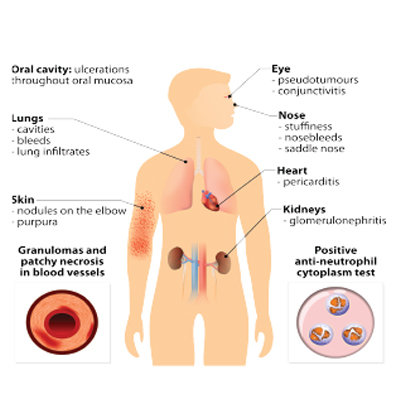
Hearing Loss
Hearing Loss (Deafness)
Overview
Hearing loss affects people differently depending on its severity.
-
Mild hearing loss: Difficulty understanding speech, especially in noisy environments.
-
Moderate hearing loss: May require the use of a hearing aid.
-
Severe to profound hearing loss: Individuals often rely on lip-reading or sign language for communication.
Hearing loss can be of three main types:
-
Conductive: Problem in the outer or middle ear.
-
Sensorineural: Damage in the inner ear.
-
Mixed: Combination of both types.
Common causes include aging, long-term exposure to loud noise, infections, or excessive earwax. While most types cannot be reversed, timely treatment and hearing support can significantly improve quality of life.
Symptoms of Hearing Loss
-
Muffling of speech and sounds
-
Difficulty understanding words in background noise or crowds
-
Trouble hearing consonants clearly
-
Frequently asking others to repeat or speak louder
-
Turning up the volume of TV or radio excessively
-
Withdrawing from conversations and social situations
-
Tinnitus (ringing in the ears)
Effects if Untreated
-
Worsening of hearing difficulty over time
-
Social withdrawal and isolation
-
Communication barriers at home and work
-
Emotional stress, anxiety, or depression
-
Safety concerns due to missed alarms or warnings
Homeopathic Treatment for Hearing Loss
Homeopathy aims to treat the root cause of hearing problems, improve auditory nerve function, and provide natural relief without side effects.
Commonly Prescribed Medicines (selected after case analysis)
-
Graphites: For chronic ear discharge and hearing difficulty
-
Chenopodium Anthelminticum: For hearing loss with tinnitus (buzzing or ringing)
-
Kali Mur: For conductive hearing loss due to ear infections or blockage
-
Silicea: For recurrent ear infections with pus and impaired hearing
-
Phosphorus: For nerve-related hearing loss, especially with buzzing sounds
Why Choose Spaks Homeopathy?
-
Gentle and natural remedies without side effects
-
Personalized treatment based on your root cause
-
Long-term relief and improved hearing ability
-
Expertise in ENT, chronic conditions, and lifestyle-related disorders
Address: E-38, Budh Vihar, Badarpur, New Delhi – 110044
Phone: +91 8700458818
Email: info@spakshomeopathy.com
Spaks Homeopathy – Hear better, live better, naturally
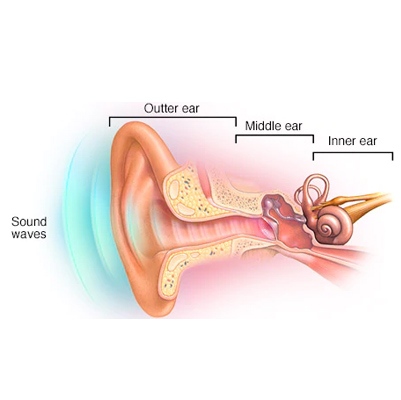
Hyperacusis
Overview
Hyperacusis is a hearing disorder where everyday sounds are perceived as uncomfortably loud, painful, or even frightening, even though they seem normal to others.
People with hyperacusis may find it difficult to tolerate common noises such as telephones, traffic, conversations, or clinking dishes. Loud sounds like fireworks or sirens may feel unbearable.
The severity can vary widely — in some, it’s a mild inconvenience, while in others, it becomes a life-changing condition that affects daily activities, work, and social life.
Symptoms
-
Sudden discomfort or pain when exposed to certain sounds
-
Feeling that ordinary sounds are excessively loud
-
Fear or anxiety about noise (phonophobia may develop)
-
Difficulty tolerating environments with background noise (restaurants, parties, traffic)
-
Avoidance of social situations due to sound sensitivity
Effects
If left unmanaged, hyperacusis can lead to:
-
Emotional distress (irritability, anxiety, depression)
-
Sleep problems due to sensitivity to nighttime noises
-
Social isolation from avoiding noisy environments
-
Reduced quality of life and productivity
Treatment
There is no single cure, but treatments and therapies can help reduce sensitivity and improve coping:
1. Medical & Therapeutic Approaches
-
Sound therapy: Gradual exposure to gentle, non-threatening sounds to retrain the brain
-
Cognitive Behavioral Therapy (CBT): Helps reduce fear, stress, and anxiety related to sound
-
Tinnitus retraining therapy (TRT): Often used if hyperacusis is associated with tinnitus
-
Ear protection: Using earplugs or noise-canceling headphones in very loud environments (not overuse, as it may worsen sensitivity)
2. Lifestyle & Self-Care
-
Avoid complete silence — maintain a soft background sound (fan, soft music)
-
Reduce caffeine and stress, which may worsen sensitivity
-
Practice relaxation techniques like yoga, meditation, or breathing exercises
-
Seek support groups or counseling for emotional support
3. Homeopathic Supportive Remedies (under professional guidance)
-
Belladonna – for sound sensitivity with throbbing headaches
-
Nux vomica – for irritability and oversensitivity to noise
-
Theridion – for extreme noise sensitivity causing nausea or dizziness
-
Phosphorus – for oversensitive nerves and anxiety triggered by sound
Key Point: Hyperacusis makes ordinary sounds feel overwhelming, but with the right therapy, lifestyle changes, and support, most people can manage symptoms and improve their quality of life.

Labyrinthitis
Labyrinthitis
Overview
Labyrinthitis is an inner ear disorder that affects the labyrinth, a structure deep inside the ear responsible for hearing and balance. The two vestibular nerves in the inner ear send signals to the brain about spatial orientation and balance control.
When one of these nerves becomes inflamed, it leads to labyrinthitis. This condition often causes dizziness, vertigo, hearing loss, and balance problems. Vertigo — a sensation that you or your surroundings are spinning — is one of the hallmark symptoms and can significantly interfere with daily activities such as driving, working, and even walking steadily.
Labyrinthitis may result from viral or bacterial infections, and while it can be distressing, medications and vestibular rehabilitation techniques often help reduce symptoms.
Symptoms may include:
-
Dizziness
-
Vertigo (a spinning sensation)
-
Loss of balance or unsteadiness
-
Nausea and vomiting
-
Tinnitus (ringing or buzzing in the ear)
-
Hearing loss, usually in one ear
-
Difficulty focusing the eyes
Effects
If left untreated, labyrinthitis can lead to:
-
Persistent balance issues
-
Chronic dizziness
-
Long-term hearing loss in the affected ear
-
Difficulty performing daily tasks
Treatment
Treatment depends on the cause and severity, and may include:
-
Medications: To reduce dizziness, nausea, and inflammation
-
Antibiotics: If a bacterial infection is suspected
-
Corticosteroids: To decrease nerve inflammation
-
Vestibular Rehabilitation Therapy (VRT): Exercises to improve balance and reduce dizziness
-
Lifestyle adjustments: Adequate rest, hydration, and avoiding sudden head movements
